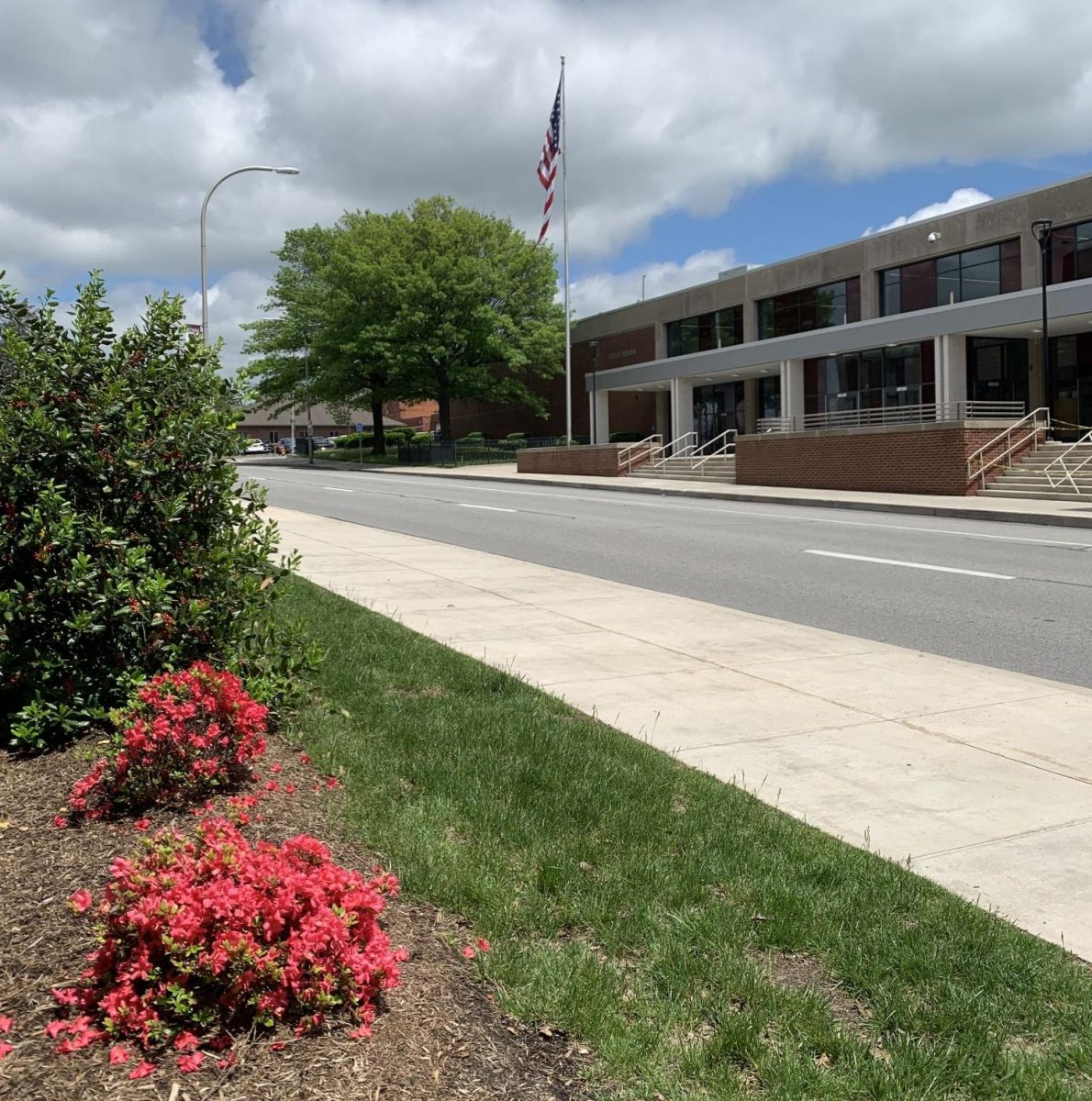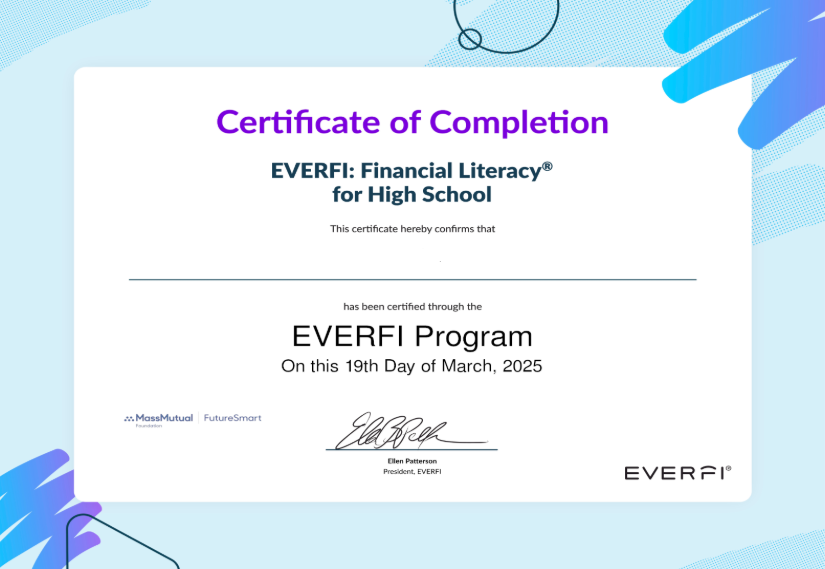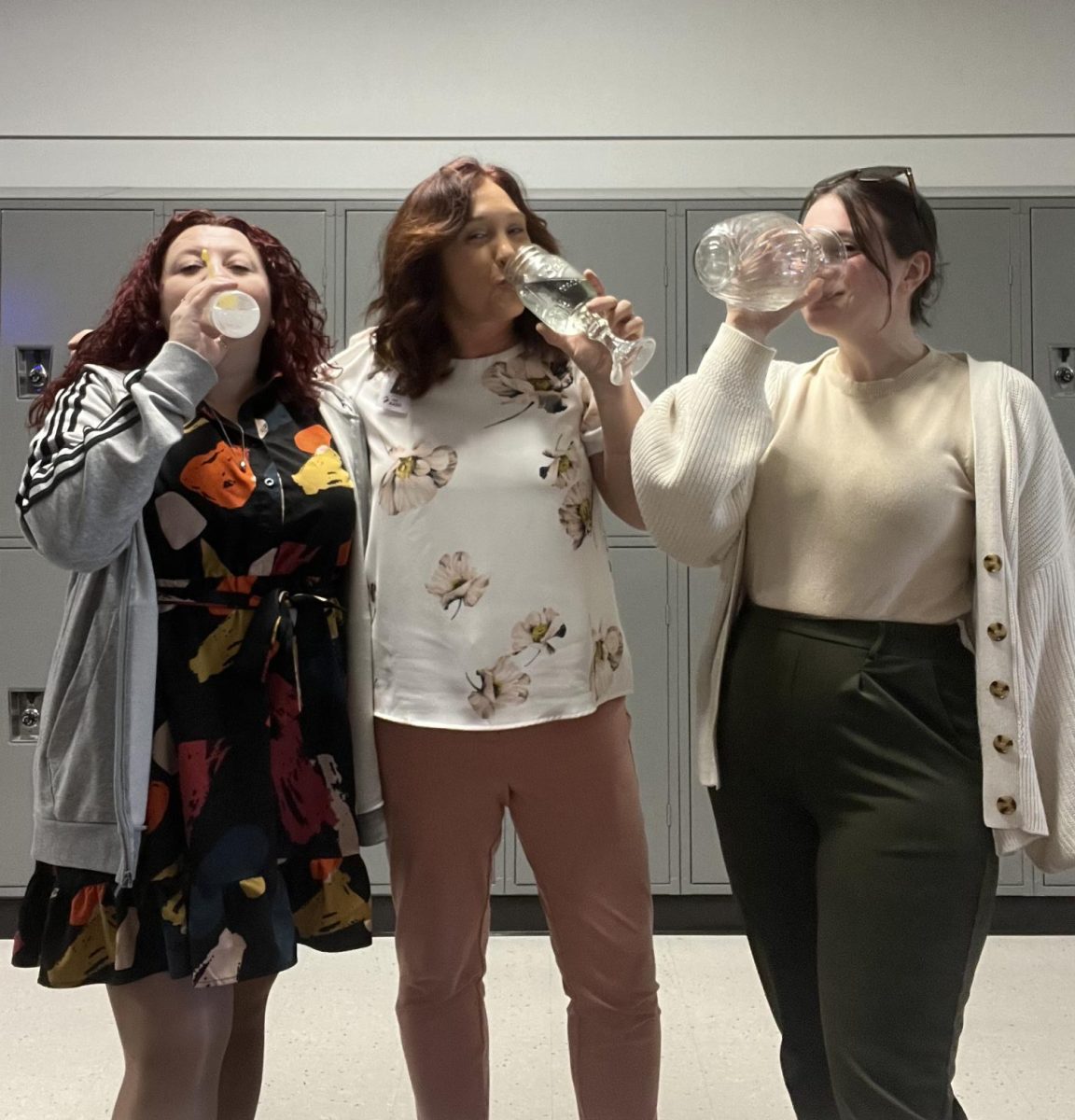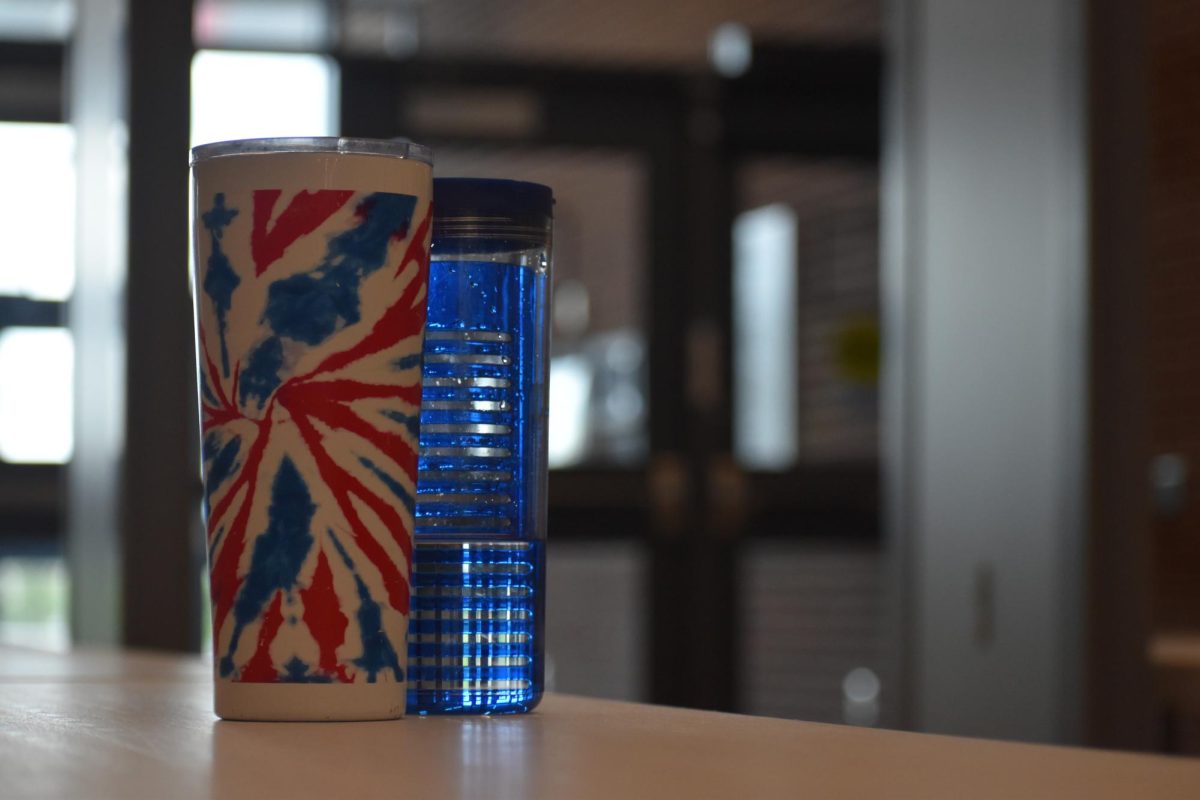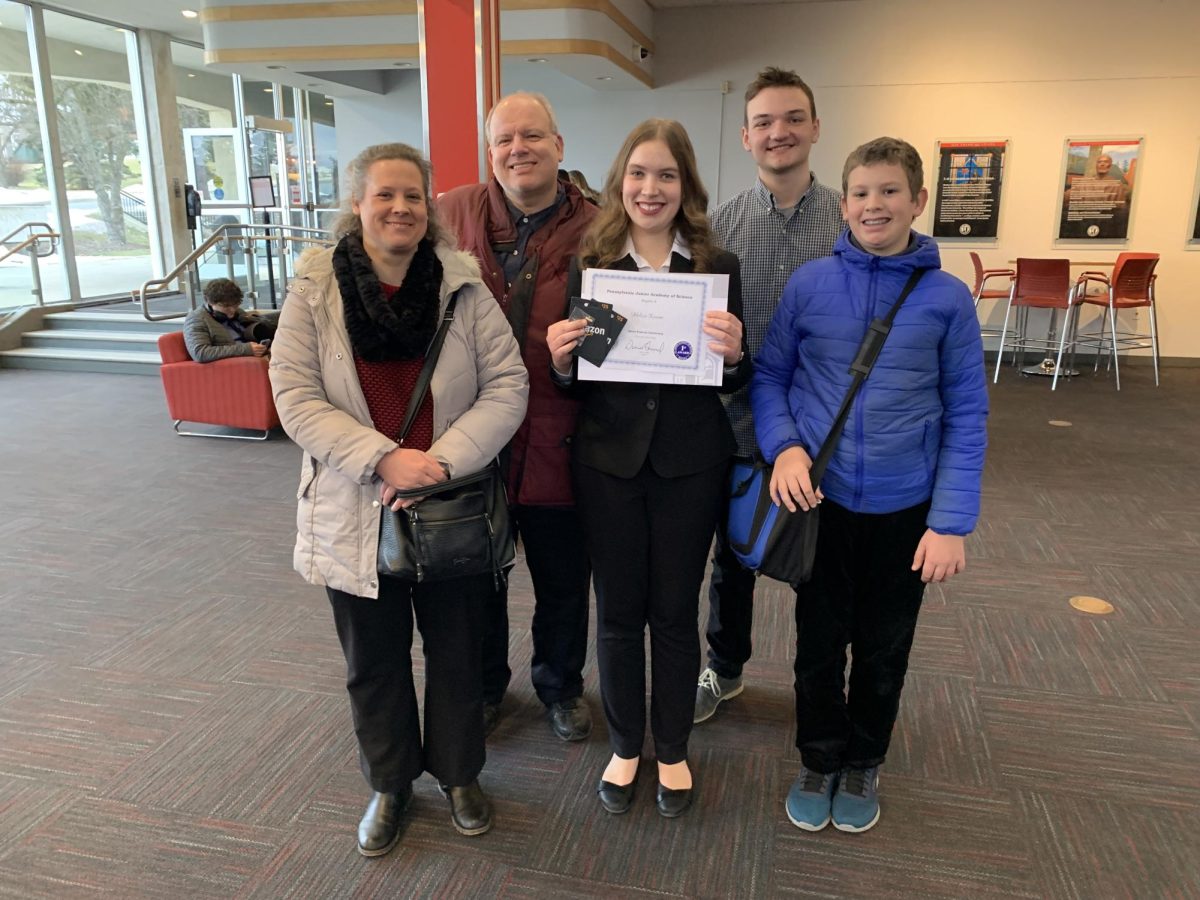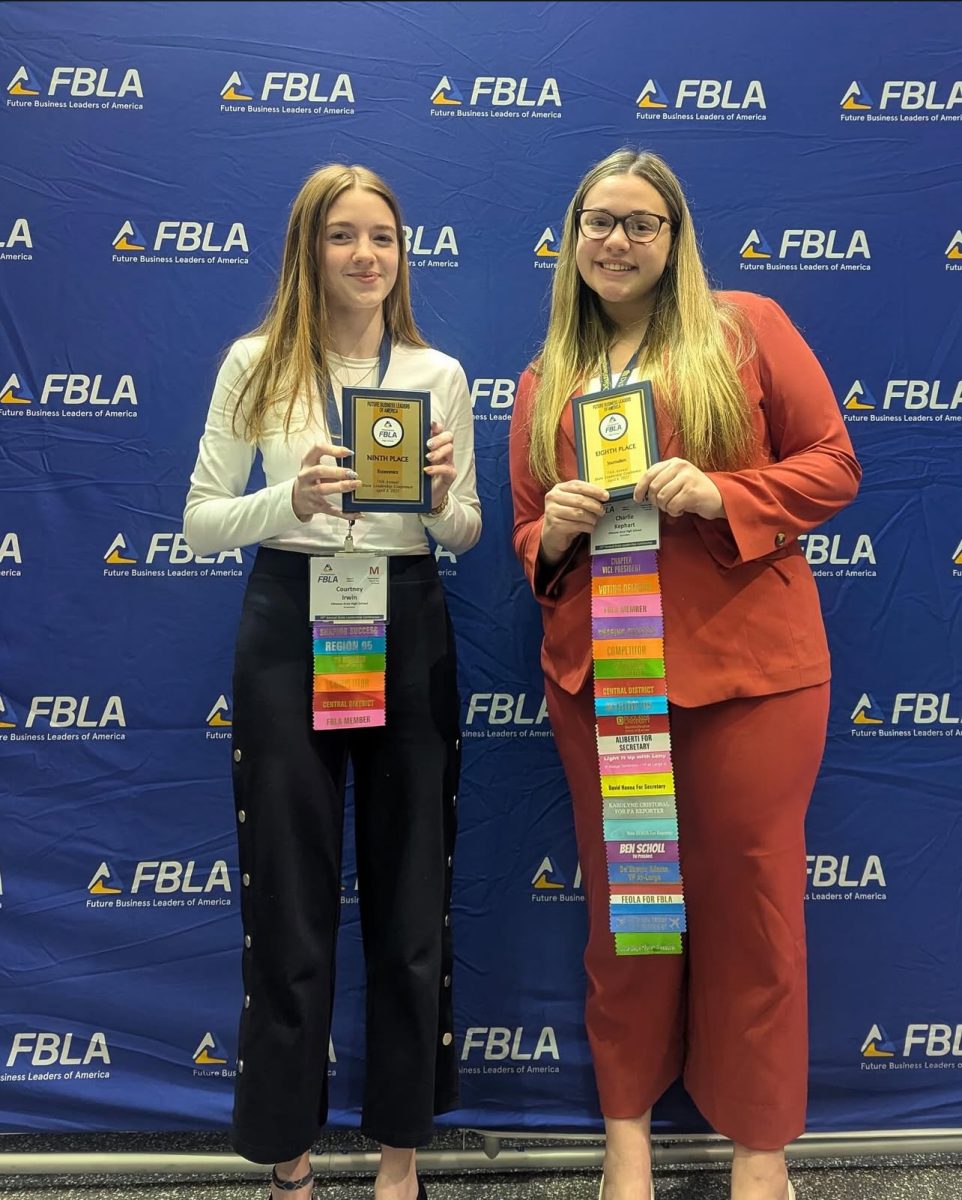PJAS students advance to States
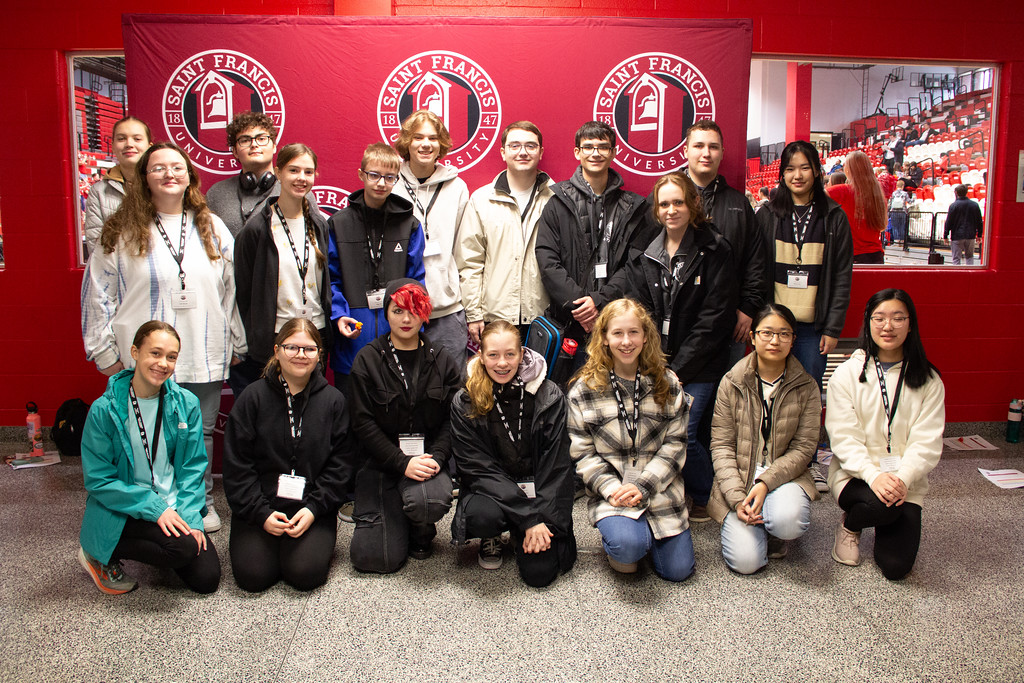
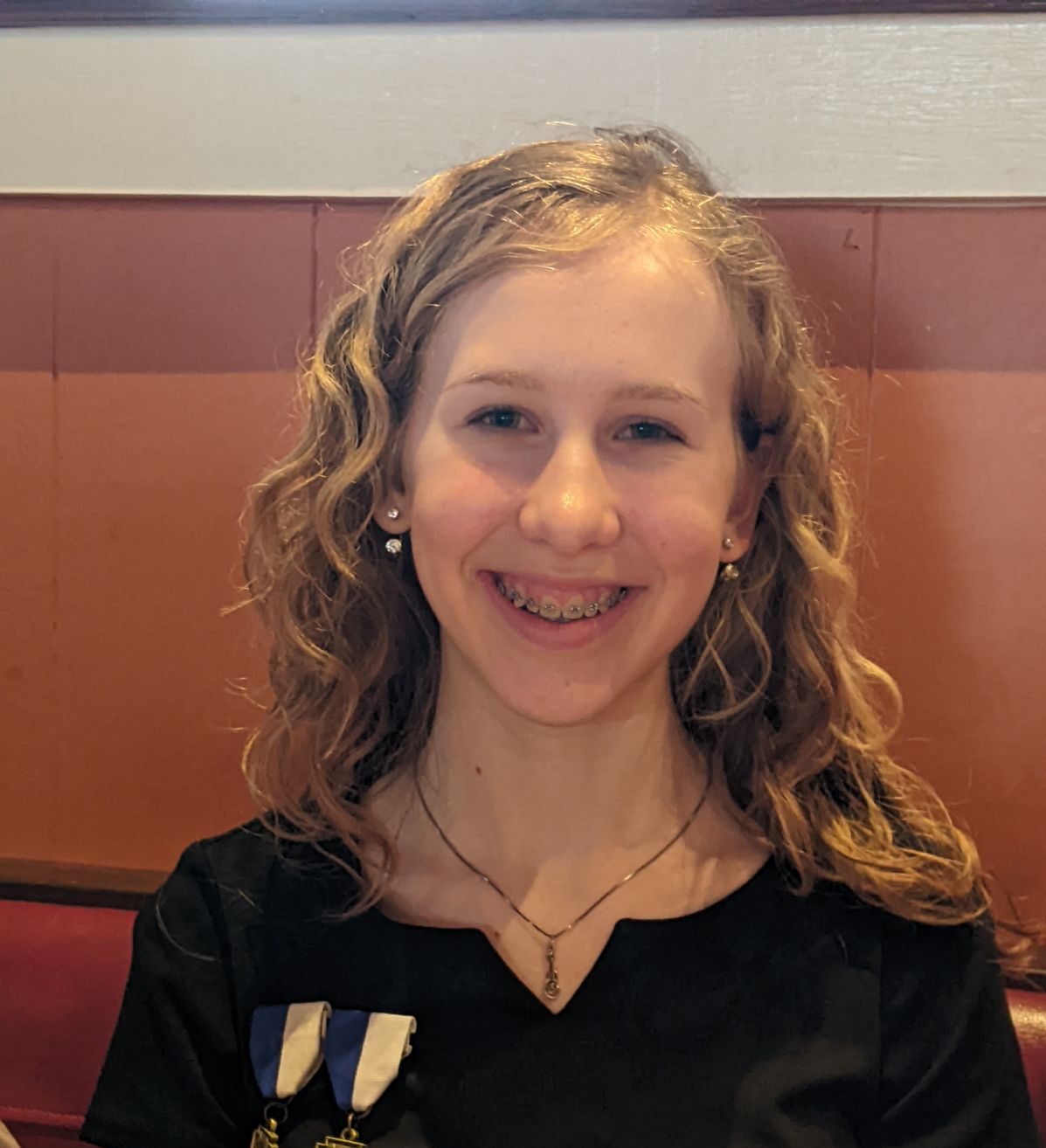
Q. What made you join PJAS?
A: I wanted to be in a club with people with similar interests to me. Also, I like the opportunity to compete because it lets me take a look at the things I’m interested in that I haven’t been able to try.
Q. What happens at the competitions?
A: I was at early judging, so what happens there is we go into different rooms based on what topic we’re doing like math, computer science, biology and then you give your presentation and the judges ask you questions which you answer as soon as you can. Then when you’re done, you get to watch other people’s presentations.
Q. What did you make/present for the competition?
A: I presented on the randomness level of pseudorandom number generators versus true random number generators, which was a computer science topic.
Q. How did you feel going into the competition?
A: Nervous, but also excited to be able to see everyone else’s presentations because I know we all worked really hard.
Q. How was the response of the judges?
A: It was interesting to see their questions and what parts of it they actually wanted to know more about. The nerve wracking part is waiting on a delivery about your presentation.
Q. What is your favorite part of competing?
A: I think just getting to go somewhere with friends and people who have similar interests to me and getting to spend time with them somewhere other than school.
Q. How were you notified that you were advancing to states?
A: The adviser, Mr. Borst, sent out on Remind the list of people who made it.
Q. How are you feeling about competing in States?
A: I’m really excited about it, actually. I think it’s going to be a great experience.
Q. What are you planning to compete with?
A: I’m studying computer science, and I’m going to try and elaborate on my Regionals topic.
Q. What would you tell a student looking to join PJAS next year?
A: I would say that it’s a great idea to join; people like it. Not everyone even has to compete, but there’s a lot of different field trips and other opportunities in the club to do what is fun and exciting to you.
Q. Do you plan to continue PJAS next year?
A: Yes, I do.
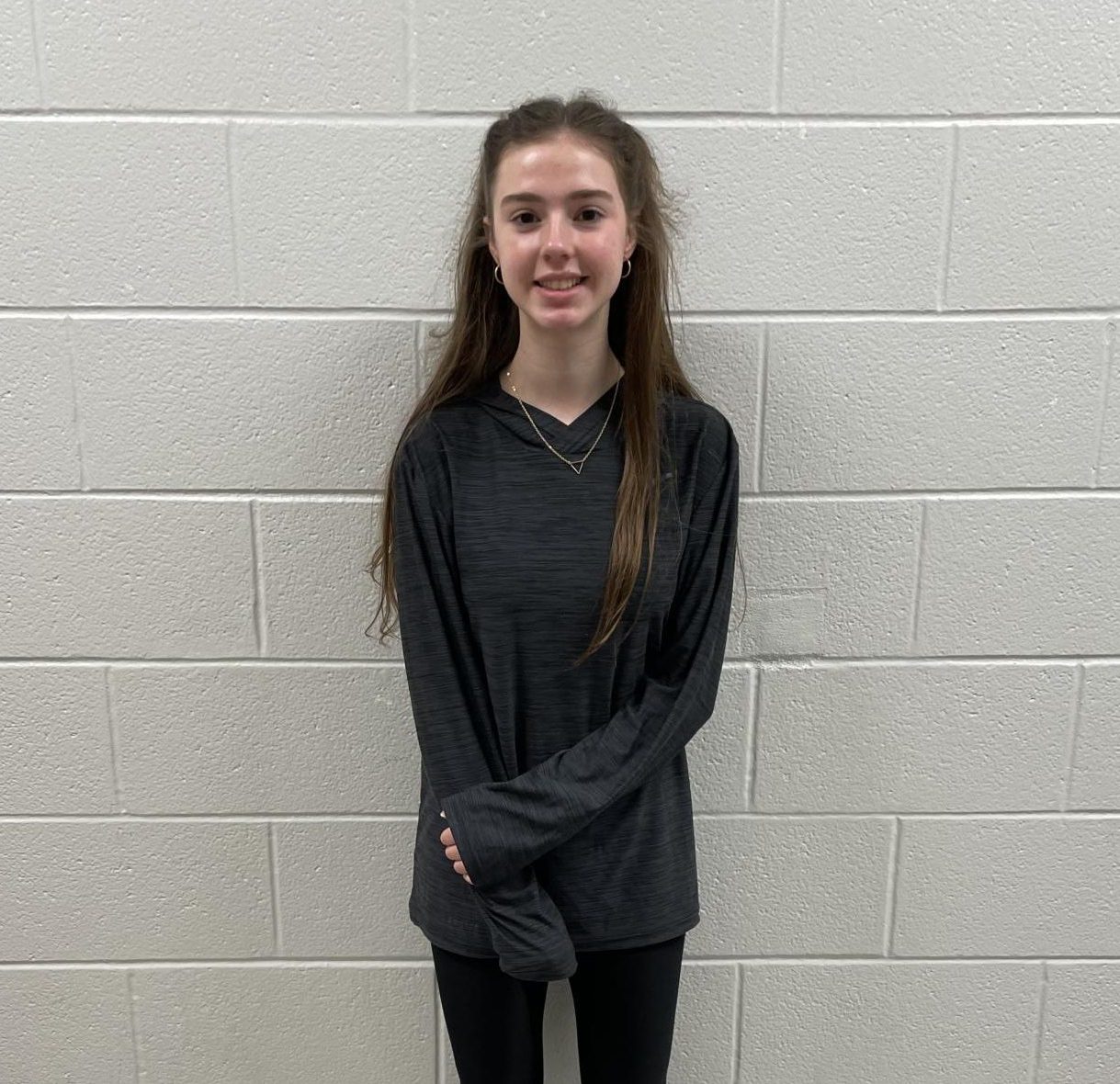
Q. What made you join PJAS?
A: I’ve had a love of science for a lot of years, but in elementary school and junior high, you don’t really have a place to nurture that. When I got to high school, they had this cool club, so I decided to join.
Q. What happens at the competitions?
A: You basically enter a large room full of different competitors, and you project your presentation onto a screen. You present your findings and your research and what you did to the panel judges, and afterwards, they get to ask you questions and they score you as you’re presenting.
Q. What did you make/present for the competition?
A: I presented on the antibacterial properties of heavy metals and metals that use every day can kill bacteria.
Q. How did you feel going into the competition?
A: I was a little bit nervous because I’ve never presented before at Junior Academy of Science, and I’ve never competed before. I wasn’t really sure what I was getting myself into, but it went well.
Q. How was the response of the judges?
A: They asked a lot of questions, a lot of which I wasn’t prepared for because I wasn’t thinking about what questions they would ask beforehand. They were all very, very good questions, though.
Q. What is your favorite part of competing?
A: My favorite part was probably being able to come up with something on my own and then going and figuring it out on my own.
Q. How were you notified that you were advancing to states?
A: I got a text message from the Remind app. Mr. Borst texted everyone who got to States.
Q. How are you feeling about competing in States?
A: I think I still have more work to do. I need to polish up my presentation and get more practice in, but I think I feel good going into it.
Q. What are you planning to compete with?
A: I’m going to do the same thing, I am going to expand and switch some things around a little bit.
Q. What would you tell a student looking to join PJAS next year?
A: Definitely compete, even if you don’t feel ready, which I didn’t my first year. Just get the experience because then next year you’ll be even more ready going into it.
Q. Do you plan to continue PJAS next year?
A: I definitely will.
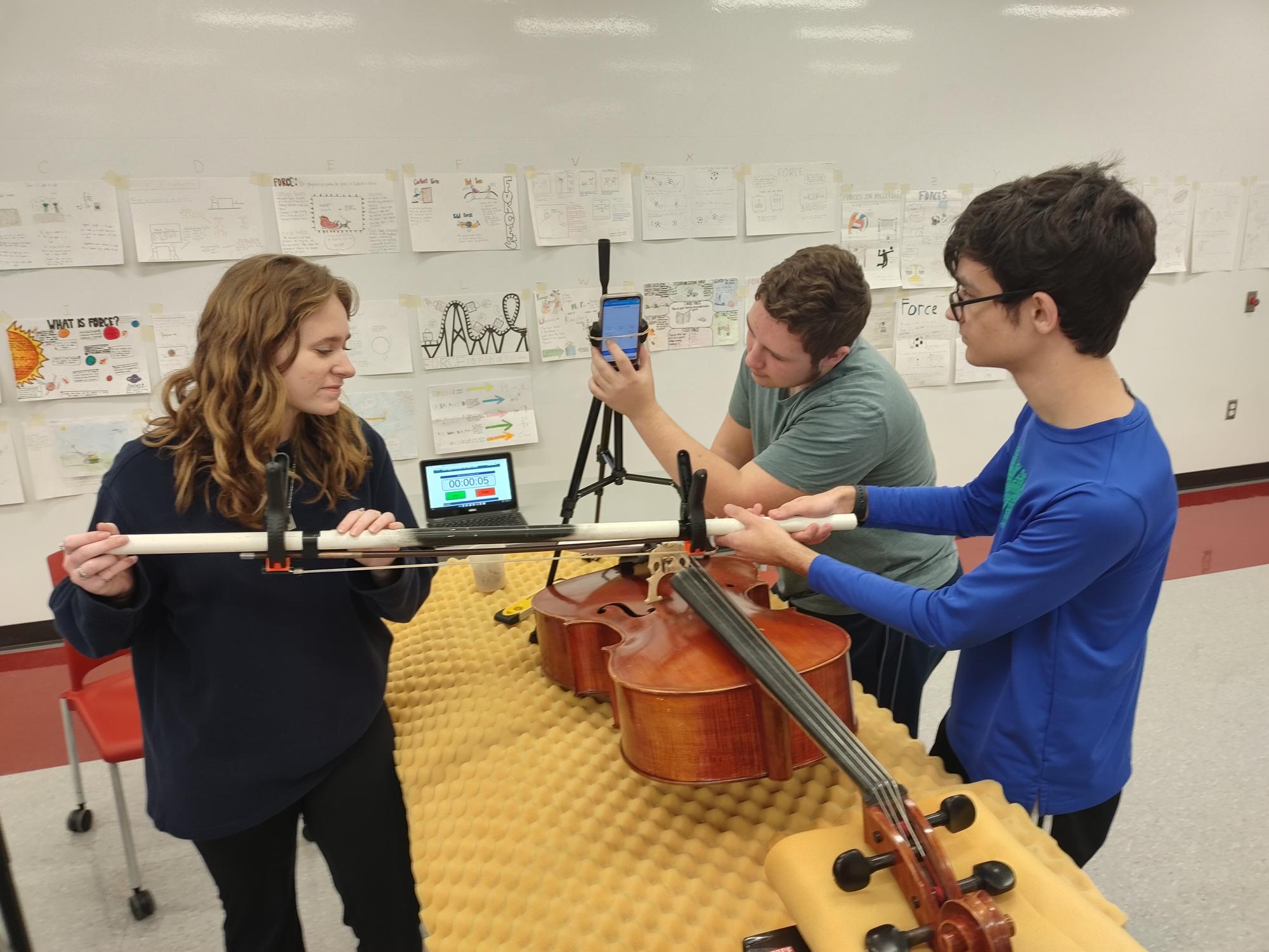
Q. What made you join PJAS?
A: I’ve always had an interest in the science field, and I want to major to become a vet. I’ve been looking into a lot of physics projects especially because of STEM, but it’s a really good program and a really good community of people.
Q. What happens at the competitions?
A: You have to present a project that you’ve made in the past couple of months that follows the scientific method. Then you get judged based off of a rubric by different judges.
Q. What did you make/present for the competition?
A: I did a sound physics project, so I measured binaural and subnational beat frequencies of sound waves.
Q. How did you feel going into the competition?
A: It’s always a little nerve wracking presenting to judges, but I was pretty confident in the club. I think we all did a pretty good job this year.
Q. How was the response of the judges?
A: They were very interested, and they seemed to really like our topics.
Q. What is your favorite part of competing?
A: Probably spending time with the club members. I feel like it’s a very good bonding activity between us.
Q. How were you notified that you were advancing to states?
A: Our adviser told us.
Q. How are you feeling about competing in States?
A: I competed last year, so it was definitely one of the best weekends of the year. I’m very excited and I know it’s going to be a lot of fun. We’ll get to tour the campus and spend a lot of time with new kids, so I’m excited.
Q. What are you planning to compete with?
A: Probably the same project, and I’m going to add some more data to it.
Q. What would you tell a student looking to join PJAS next year?
A: I would tell them that it’s a very good experience. You learn a lot and you get to work with mentors, and it looks great on college applications. It’s a really great experience between club members.
Q. Do you plan to continue PJAS next year?
A: Yeah.
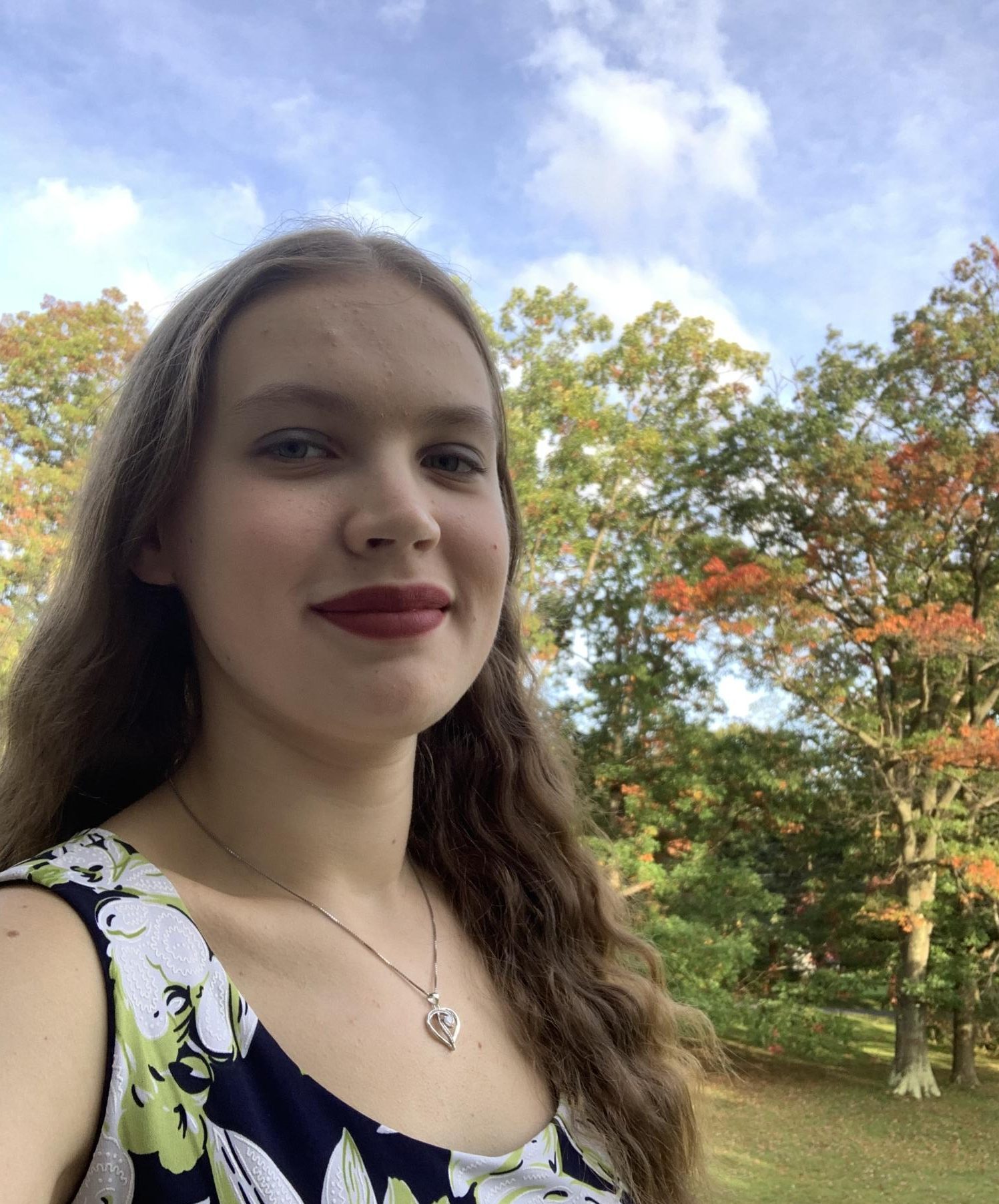
Q. What made you join PJAS?
A: My freshman year I was listening to the announcements, and they were advertising for this club. I’ve always been interested in science. I also want to do something in science after high school, so I thought I’d check it out.
Q. What happens at the competitions?
A: Basically, we have a few months to prepare a 10 minute presentation, which is either an experiment or science project, or we can research a topic and then use that data and analyze it. Then we present it to the judges at Regionals, and if you’re lucky and get a first place, we move to States which is over multiple days.
Q. What did you make/present for the competition?
A: This year my presentation was on Modular Arithmetic and the RSA Encryption and Decryption Algorithm.
Q. How did you feel going into the competition?
A: The ride there I was really anxious because I had practiced the presentation a few times, but I wasn’t as confident as I was last year. When I got there and I was in front of the judges, I was like ‘I can do this, I practiced this, I know this stuff,’ and it just flowed really nicely, and I was really happy.
Q. How was the response of the judges?
A: The more I was presenting, the more I could see one of the judges started smiling, and she was really into the material, and I was like ‘yes!’ I don’t think the other judge really understood what I was saying, but afterwards I got a lot of their questions, and it was like they were really invested, which is nice. I felt like they really understood what I was saying.
Q. What is your favorite part of competing?
A: I’ll have to say my favorite part is creating a slideshow, like getting creatively invested, branching out and presenting the topic the way you like.
Q. How were you notified that you were advancing to States?
A: This year, because district orchestra actually interfered with Regionals, I did early judging at Bellwood Antis. Then Mr. Borst, who’s our club adviser, sent a message that said, ‘Hey, you guys won first place.’
Q. How are you feeling about competing in States?
A: I’m excited. I think that, like last year, there’s going to be a lot of other students in the math category as well, and I’m excited to talk to them and see what they did.
Q. What are you planning to compete with?
A: I’m planning to go with the same project. I might tweak a few things, but otherwise I think I’m going to stay the same because I’m almost at the 10 minute mark, so if I change anything that’s going to mess up my time.
Q. What would you tell a student looking to join PJAS next year?
A: I would tell them to do it. You don’t have to compete if you join the club, however going is a really rewarding experience. It is a lot of work trying to learn stuff and create a presentation and all of that, but once you get to regionals, just interacting with other students who have the same interests, it’s amazing to have that experience.
Q. Do you plan to continue PJAS next year?
A: Absolutely.
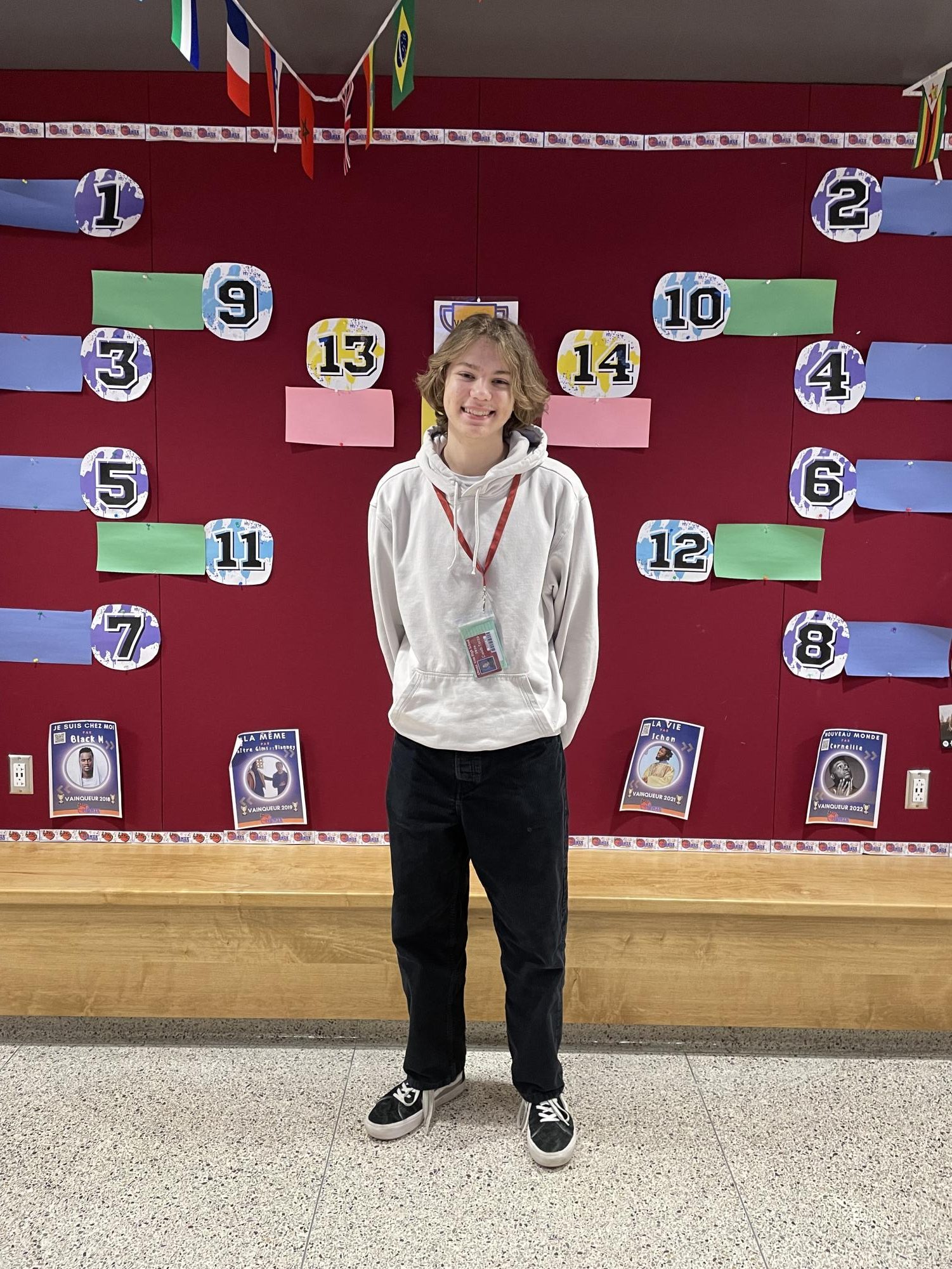
Q. What made you join PJAS?
A: I really wanted to get into a science club, so I asked my old biology teacher what clubs I should do, and she recommended me for Junior Academy of Science.
Q. What happens at the competitions?
A: We have a project that we do previously. It includes an experiment that we test, and then we gather our conclusions. Then we present that and the judges grade us based on how good we did.
Q. What did you make/present for the competition?
A: I looked at how UV light affects bacterial growth.
Q. How did you feel going into the competition?
A: I was really nervous. I had never done it before, so it was my first time and I was really scared.
Q. How was the response of the judges?
A: I ended up getting first place, which means I did everything right or more. I’m assuming that they thought I did pretty good.
Q. What is your favorite part of competing?
A: Probably sharing my findings and the stuff that I found that was really cool.
Q. How were you notified that you were advancing to States?
A: I had done makeup competitions because I couldn’t go to the actual competition, so the teachers Mr. Borst and Mrs. Kutruff had to email me and tell me that I got first place.
Q. What are you planning to compete with?
A: I’m probably going to look at the same experiment, but more in depth. I’ll probably look at different materials to see how the UV affects the bacteria.
Q. What would you tell a student looking to join PJAS next year?
A: Definitely join. They’re great teachers, and it’s a great club. There’s nothing bad about it. It’s a fun club that lets you really explore science.
Q. Do you plan to continue PJAS next year?
A: Yes, definitely.
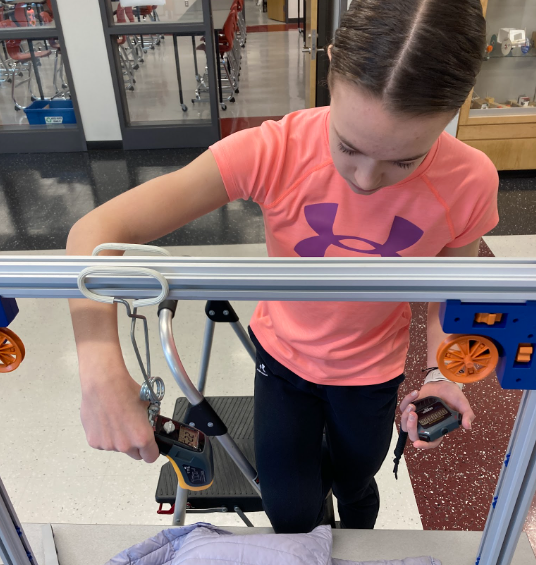
Q. What made you join PJAS?
A: I want to do something with science in my future, like with my career, so I wanted to do something that could show colleges that I really enjoy science.
Q. What happens at the competitions?
A: You’re assigned to a room, and that room has a couple of judges, mine had four. They usually vary from all kinds of people, so there was a college student, there was a teacher, there was a college professor, and you get 10 minutes to present. Usually, there’s a couple of other kids who present in your room based off of your topic and grade.
Q. What did you make/present for the competition?
A: My experiment was whether the silver lining on coats was effective or not, like how in Columbia coats some are silver on the inside.
Q. How did you feel going into the competition?
A: I was really nervous, but I feel like I was very well prepared. Working with Mr. Borst and Mrs. Kutruff was really good, and I felt like I learned a lot.
Q. How was the response of the judges?
A: They really liked my statistics. I did statistics that you would usually find in more of the upper grade levels, and I think that really worked to my advantage. They thought it was a cool experiment, especially because I was really passionate about it.
Q. What is your favorite part of competing?
A: I really liked going out to lunch after at the cafe at Saint Francis. I think it was a really good experience overall, and it’s really going to help me in the future.
Q. How were you notified that you were advancing to States?
A: We went to the auditorium after they had looked at all of our experiments and stats and stuff. Then they called us up by name and you stood with the people who you were in a classroom with. Then they called you up and told you what place you got, and I got first.
Q. How are you feeling about competing in states?
A: I’m really nervous because I know the judges are going to be a lot more meticulous in what they look for, but I think that with the second experiment that I’m doing it’s going to be a lot better.
Q. What are you planning to compete with?
A: So for my first experiment, I put a little light bulb in a heated bowl and reflected it up onto the coat, and then I measured the heat of the coat like every 30 seconds. With the next experiment I’m going to do, I’m going to heat up a hand warmer and put it in the jacket with the silver liner, and put another in another jacket that’s normal and see which one has a higher temperature after a while.
Q. What would you tell a student looking to join PJAS next year?
A: I think you should really do it. Even if you don’t end up doing a project, it’s a really great experience. The school funds it, so you can do a lot. I didn’t have to spend a dollar on anything. The only thing I had to spend money on was the $5 to join the club. I think it’s a really great experience and you can learn a lot. It’s also not heard at all. You can do literally any project. You can do math or science, like you can do biology, chemistry, anything, and the school will provide it for you.
Q. Do you plan to continue PJAS next year?
A: Yeah.


